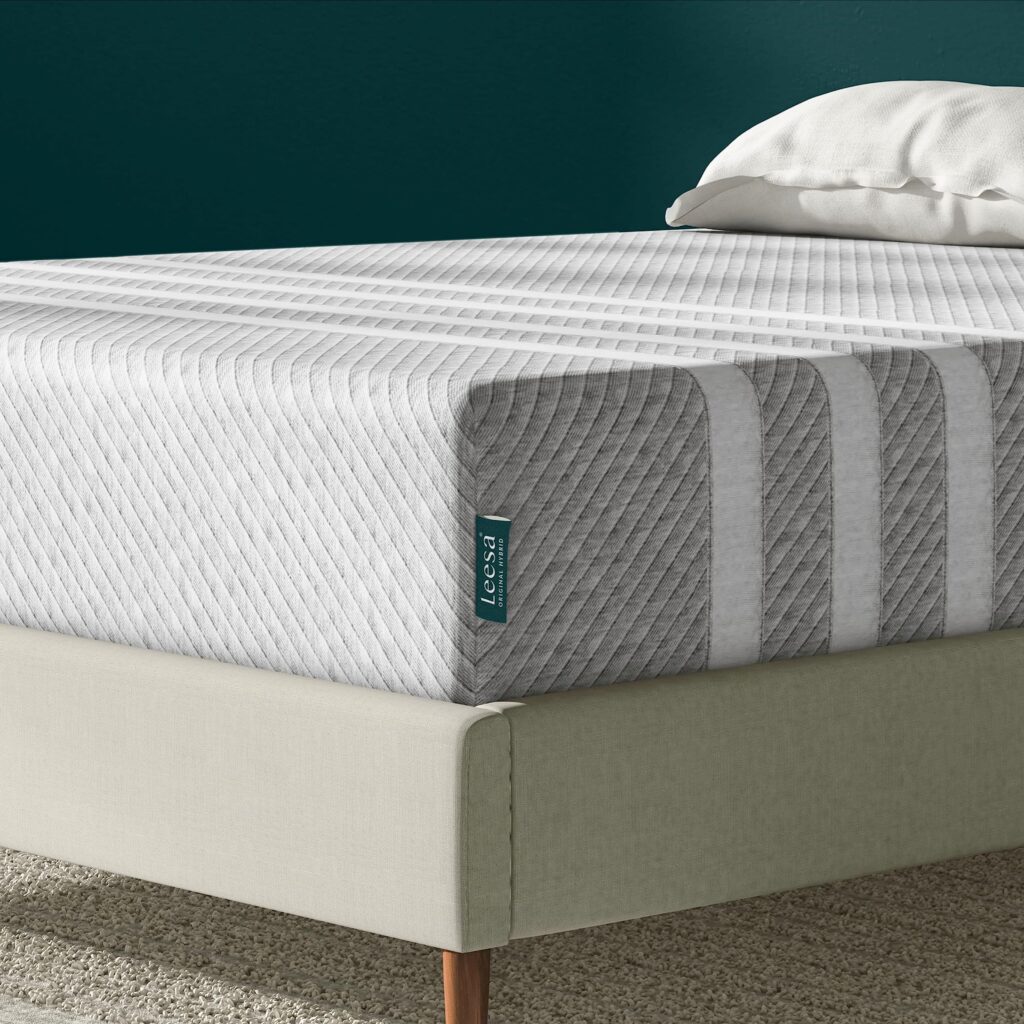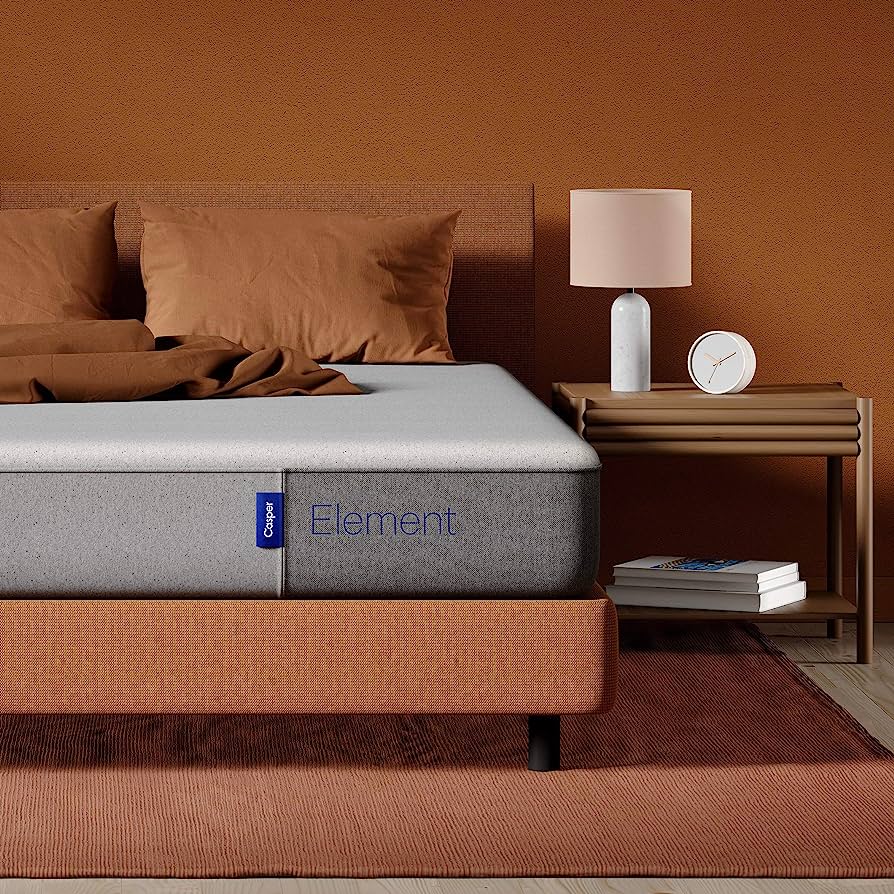The journey of pregnancy is an exciting one filled with anticipation, joy, and a myriad of changes. One often overlooked but vital factor during this journey is the quality of sleep. Finding the best mattress for pregnancy can make all the difference, offering the much-needed comfort and support that an expecting mother’s body craves.
The Connection Between Pregnancy and Sleep
Pregnancy affects every aspect of a woman’s life, including her sleep patterns. There are common sleep challenges during pregnancy. Difficulty finding a comfortable sleeping position, frequent trips to the bathroom, and physical discomfort due to the growing baby bump.
For hot sleepers, the increased body heat during pregnancy can exacerbate sleep disturbances. This makes it essential to address the issue when choosing a mattress. Thus, understanding the intricacies of sleep during pregnancy can help in making the right mattress choice.
Sleep Positions During Pregnancy
Sleep positions during pregnancy play a crucial role in the overall well-being of both the mother and the baby. Doctors commonly recommend side-sleeping, especially on the left side, because it offers several benefits.
This position helps to optimize blood flow to the placenta and uterus, ensuring a steady supply of nutrients and oxygen to the developing fetus. Additionally, left-side sleeping can reduce pressure on the mother’s liver and improve kidney function. This promotes better circulation and reducing the risk of swelling.
However, as the pregnancy progresses, maintaining a comfortable side-sleeping position can become increasingly challenging. The growing belly can put strain on the hips and lower back, leading to discomfort and disturbed sleep.
This emphasizes the importance of selecting the right mattress, specifically tailored to provide the necessary support and cushioning for the pregnant body.
The Role of Sleep Hygiene
Sleep hygiene encompasses habits and practices conducive to sleeping well. Simple practices such as sticking to a consistent sleep schedule, creating a serene sleep environment, and ensuring comfort can enhance sleep hygiene during pregnancy.
Importance of Choosing the Right Mattress for Pregnant Women
The importance of choosing the right mattress during pregnancy cannot be overstated. An apt mattress can support the changing body, alleviate back pain, and ensure restful sleep. Here’s why:
Mattress Firmness for Pregnancy
During pregnancy, a woman’s body undergoes significant changes, and finding the right mattress firmness becomes essential to support these transformations. A medium-firm mattress is generally recommended for pregnant women as it strikes a balance between comfort and support.
The medium-firm level can provide adequate support to the body’s natural curves, including the growing belly, while still offering enough softness for comfort. This helps to alleviate pressure points in areas such as the hips, shoulders, and lower back, commonly affected during pregnancy.
Mattress Materials and Pregnancy
When it comes to choosing a mattress during pregnancy, safety is of utmost importance. Mattresses made from pregnancy-safe materials are designed to prioritize the health and well-being of both the mother and the unborn baby.
It’s also essential to check the 10-year warranty offered by the mattress manufacturer. There are several crucial factors to consider in these mattresses:
Hypoallergenic: Pregnancy can sometimes make women more sensitive to allergens. A hypoallergenic mattress can be beneficial in reducing the risk of allergic reactions and ensuring a healthier sleeping environment.
Eco-friendly: Opting for an eco-friendly mattress means it is made from sustainable materials and has a reduced impact on the environment. This choice can provide peace of mind to environmentally conscious expecting mothers.
Free of Harmful Chemicals: Pregnant women should be cautious about mattresses that contain harmful chemicals. Some are certain flame retardants, volatile organic compounds (VOCs), or formaldehyde. Choosing a mattress certified as low in VOCs and free from toxic chemicals is crucial to avoid potential health risks.
Breathable and Cool: Pregnancy can lead to increased body heat. Choosing a mattress with breathable materials can help regulate temperature and prevent overheating during the night.
Certifications: Look for mattresses with certifications like CertiPUR-US or Oeko-Tex Standard 100. They indicate that the mattress meets specific safety and environmental standards.
Examination of Different Mattress Types for Pregnancy
Memory Foam Mattress
A memory foam mattress is an ideal choice for pregnancy due to its ability to conform to the body’s shape, providing ample support and pressure point relief.
Its contouring effect is particularly beneficial for targeting the hips, shoulders, and lower back, areas that often experience increased pressure during pregnancy.
The motion isolation properties of memory foam can be advantageous for reducing disruptions from partner movements. This ensures a more restful sleep experience.
Latex Mattress
Pregnant women often find comfort and support in a latex mattress. Its natural buoyancy offers a responsive feel, making it easier to change positions during the night without feeling stuck in the mattress.
The combination of comfort and support in latex mattresses can help alleviate discomfort and promote better sleep quality. Moreover, the hypoallergenic nature of latex makes it a suitable choice for individuals with allergies or sensitivities.
Hybrid Mattress
A hybrid mattress presents an attractive option for pregnant women seeking the best of both worlds. By combining an innerspring coil system with a top comfort layer made of memory foam or latex, a hybrid mattress offers excellent support and contouring.
The innerspring coils provide a sturdy support base, while the memory foam or latex layer offers pressure relief and comfort. Additionally, hybrid mattresses often incorporate enhanced breathability features, ensuring a cooler and more comfortable sleep environment.
Innerspring Mattress
While innerspring mattresses can provide firm support, their overall comfort largely depends on the quality and thickness of the top comfort layer.
Pregnant women may benefit from an innerspring mattress with a thicker and more cushioned comfort layer to relieve pressure points and promote better sleep.
However, it’s essential to consider individual preferences and specific needs when choosing an innerspring mattress for pregnancy.
Couples sharing the bed should also consider motion transfer. The traditional innerspring mattresses can cause disturbances from partner movements during sleep.
Best Mattress for Back Pain during Pregnancy
During pregnancy, back pain is a common concern due to the added weight and changes in posture. A mattress with medium firmness, such as memory foam or latex, can be highly effective in alleviating this discomfort.
The contouring effect of memory foam and the buoyant support of latex work together to relieve pressure on the spine. With this, they are providing targeted support to areas like the hips and lower back, which are particularly vulnerable during pregnancy.
This combination of support and pressure relief can significantly improve the sleep quality and overall well-being of expectant mothers.
Pregnancy Mattress Topper: An Alternative Solution
Opting for a pregnancy mattress topper offers a cost-effective solution for improving sleep during pregnancy without the need to purchase a new mattress.
By placing the topper on your existing mattress, you can enhance its comfort and provide additional support. With this, alleviating the discomfort caused by pressure points and the changing contours of your body.
This simple yet effective upgrade can make a significant difference in promoting better rest and overall well-being throughout your pregnancy journey. Moreover, when the pregnancy phase is over, the mattress topper can easily be removed, making it a versatile investment for long-term use.
Pregnancy Pillows: Additional Comfort for Expecting Mothers
Pregnancy pillows serve as excellent additions, offering much-needed extra support and comfort during this transformative time. Among the most common types are full body and wedge pillows, each designed to address specific needs.
Full body pillows embrace the entire body, supporting the belly, reducing back strain, and encouraging side-sleeping. Wedge pillows on the other hand, provide targeted support to alleviate specific pressure points and enhance overall comfort.
These specialized pillows can be valuable companions throughout pregnancy, promoting better sleep and overall well-being for expectant mothers.
Choosing the Best Beds for Expecting Mothers
When selecting a bed during pregnancy, several factors come into play, and it’s essential to make informed choices.
Firstly, consider the mattress’s firmness, opting for one that offers adequate support to alleviate any potential back or hip pain.
Secondly, choose a bed size that provides ample space for changing positions comfortably, allowing you to find a position that promotes better sleep.
Lastly, prioritize mattresses made of safe and non-toxic materials, ensuring a healthy sleeping environment for both the mother and the unborn baby.
By carefully considering these aspects, you can create a comfortable and supportive sleep space that contributes to a more restful and enjoyable pregnancy journey.
Mattress Review: Top Picks for Pregnancy
While individual needs may vary, some of these types of mattresses for pregnancy stand out.
Purple: Purple mattress models are known for their innovative grid technology, providing excellent support while promoting airflow to keep the sleeping surface cool and comfortable.
Tempur-Pedic: Tempur-Pedic is renowned for its high-quality memory foam mattresses that offer outstanding pressure relief and contouring, making them ideal for a pregnant person seeking extra support.
Saatva: Saatva offers luxury innerspring and hybrid mattresses with various firmness options, providing customizable support for pregnant women with different preferences.
Leesa: Leesa mattresses are crafted with a combination of memory foam and supportive base foam, offering a good balance of comfort and support for expectant mothers.
Casper: Casper mattresses combine memory foam and zoned support for optimal spinal alignment, making them a popular choice for pregnant women in need of pressure relief and back support.
Layla: Layla mattresses feature a flippable design with two firmness levels in one mattress, allowing pregnant women to choose the side that suits their comfort needs.
Tuft & Needle: Tuft & Needle mattresses are made with adaptive foam that adapts to the body’s contours, offering gentle support and pressure relief for pregnant sleepers.
Brooklyn Bedding: Brooklyn Bedding offers a range of high-quality mattresses, including memory foam and hybrid options, suitable for pregnant women looking for exceptional comfort and support.
Additional Tips for Sleep Comfort During Pregnancy
Sleep Hygiene
Maintaining a consistent sleep schedule is crucial during pregnancy to regulate the body’s internal clock and improve sleep quality. Avoiding caffeine close to bedtime helps prevent sleep disruptions and restlessness. Creating a serene sleep environment involves dimming lights, reducing noise, and maintaining a comfortable room temperature, fostering relaxation and better sleep.
Dietary Changes
Avoid large meals before bedtime to reduce discomfort and heartburn. Consuming more proteins and whole grains can promote better sleep, aiding in a more restful night’s sleep.
Bedding Recommendations
Opting for breathable, soft bedding materials is essential to regulate body temperature and prevent overheating during pregnancy. Additionally, choosing hypoallergenic bedding can minimize allergic reactions, creating a cleaner and more comfortable sleep environment.
Conclusion
Choosing the right mattress during pregnancy is crucial for ensuring quality sleep, minimizing discomfort, and promoting overall wellbeing. Remember, individual needs vary, so consider your comfort, body changes, and doctor’s advice while making the choice.
Frequently Asked Questions (FAQ)
Which type of mattress is best in pregnancy?
A memory foam mattress or a latex mattress is often considered the best type for pregnancy due to their ability to conform to the body’s shape and provide optimal support and comfort.
However, the best choice depends on the person’s preferences and specific needs. It’s essential to try out different options to find the most suitable mattress for a restful sleep during pregnancy.
Is a firm or soft mattress better during pregnancy?
A medium-firm feel mattress is generally considered better during pregnancy as it provides a good balance of support and comfort. It offers enough support to alleviate pressure points while still being soft enough to conform to the body’s changing shape, promoting a more restful sleep for expectant mothers.
How can a pregnant woman sleep comfortably?
To sleep comfortably during pregnancy, a pregnant woman can try side-sleeping with a pillow between her knees for added support. Additionally, using pregnancy pillows or elevating the upper body with extra pillows can help alleviate discomfort and promote better sleep.
Is it safe to sleep on soft mattress during pregnancy?
Yes, it is generally safe to sleep on a soft mattress during pregnancy, as long as it provides adequate support to the body’s changing shape.





